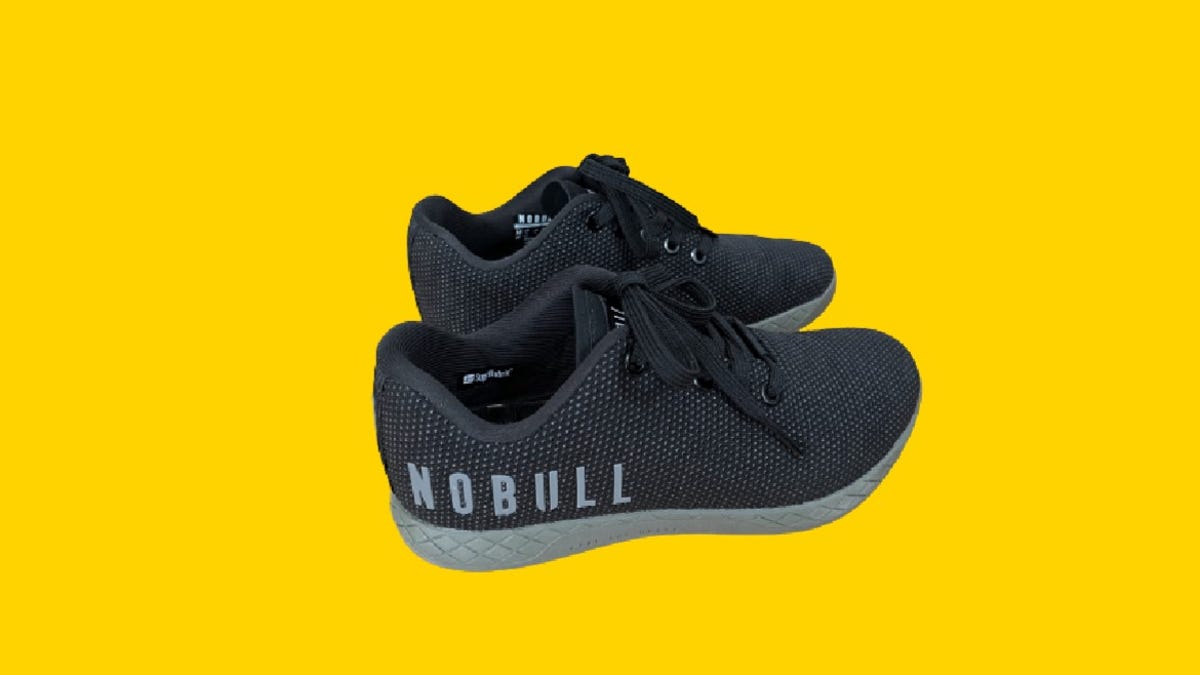Because weightlifting shoes are a unique type of footwear, we got feedback from experts on the qualities we should be looking for when shopping for these shoes.
They are true to size: Weightlifting shoes tend to run true to size to fit your exact foot measurements. “This is because you don’t want to move around inside the shoe at all when squatting or Olympic lifting, since the shoe should solidly move with you through your lift,” explains Matt Scarfo, a National Academy of Sports Medicine certified personal trainer.
Additionally, you want to make sure the shoe is stable and supportive. “They shouldn’t be too comfortable to walk around in, because the platform of the shoe should be rigid so you can put all your force through the shoe into the floor,” says Scarfo.
Phung D. Tran, an American College of Sports Medicine certified exercise physiologist, adds that if you have wide feet, it is completely OK to go up half a size so the shoe sits more comfortably. “Also keep in mind, weightlifting shoes do not help with flat feet as much, since they provide no cushion for the soles,” Tran explains, adding, “It’s up to you to do exercises to improve your arch and calf muscles’ strength.”
“Don’t shop by brand; shop by fit, because you need to try on shoes from a variety of brands to see which ones feel the best to you,” says Tran. “It doesn’t matter how cool the shoe looks or how many high-tech features it has, because if they aren’t comfortable, your workouts will become a struggle,” she points out. Keep in mind when shopping for weightlifting shoes that comfort and stability are key.
Raised-heel shoes: One of the styles of weightlifting shoes you’ll come across has a raised heel. These usually have laces and a Velcro strap across the top to keep your feet extra secure. These shoes are best if you practice Olympic lifting exercises that include clean-and-jerks or snatches. It’s also beneficial if you’re doing exercises like squatting and trying to get deeper in your squat. “Heeled weightlifting shoes help those with limited ankle mobility by elevating the heels and decreasing the angle between the shin and the top of the foot, improving squat depth,” explains Scarfo. He says you should only use these shoes for squatting and Olympic lifting as they provide a stable base for dropping into a squat and engaging the hamstrings to lift out of it.
That’s all they’re good for. “You absolutely do not want to use heeled weightlifting shoes for deadlifting, because these shoes can move your center-of-gravity forward, causing you to use too much of your back to deadlift, and increasing risk of injury,” he warns.
Flat-sole shoes: There also are weightlifting shoes that fall under the flat-sole or minimalist shoe category. These are solid, flat and have a zero-drop sole, which means there is no height difference between the heel and toe. “Look for good ankle support, excellent grip and a flexible sole if you opt for a minimalist training shoe,” says Tran. The flexible sole will help optimize performance in everything from plyometrics to heavy lifts.
This style tends to be more versatile because, unlike the heeled weightlifting shoe, it can be used for all your lifts and even cardio exercises. “However, these won’t help you drop into a squat without a little stretching,” says Scarfo. But this doesn’t mean it’s impossible to have the proper ankle flexion needed to squat without heels. He suggests foam rolling, stretching your calves and doing plenty of ankle stretches to prepare your Achilles tendon ahead of your lifting sessions. This should also include a long warmup, so your body is prepared to stabilize your ankles during these workouts.
